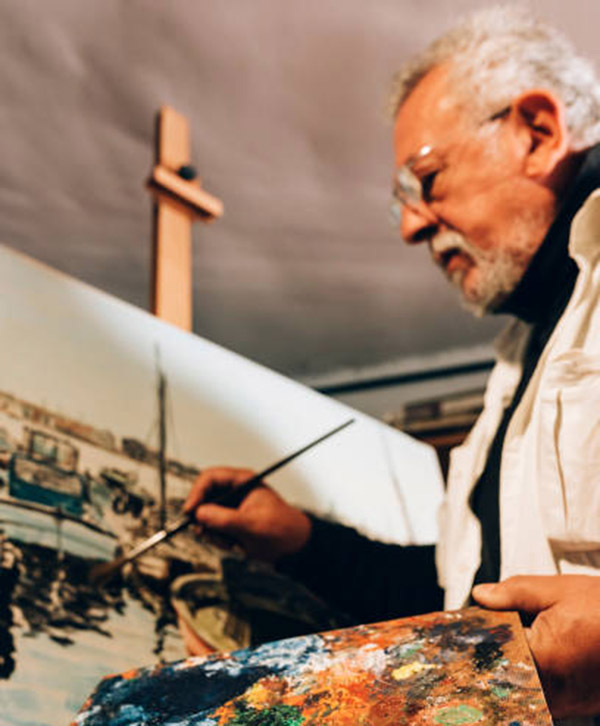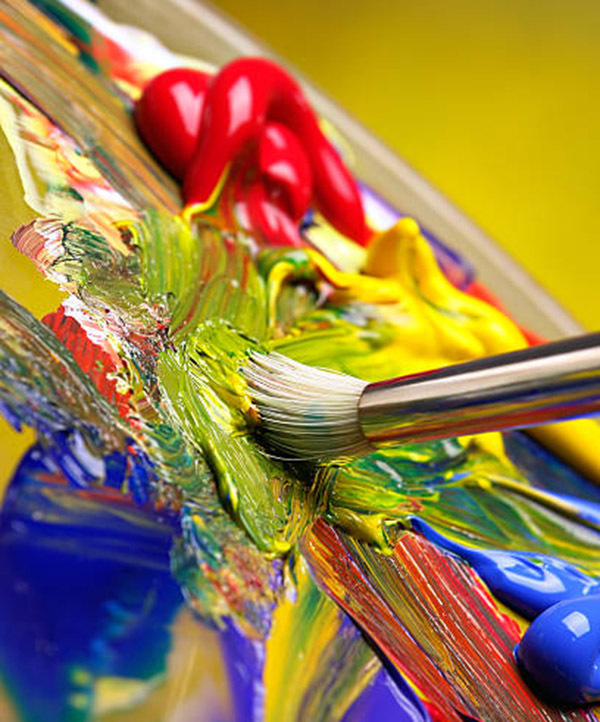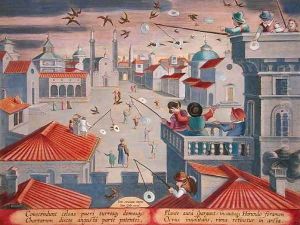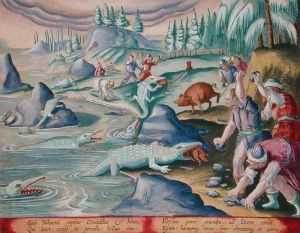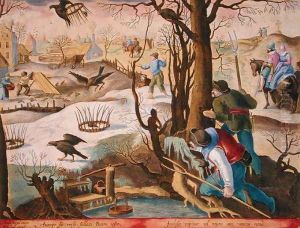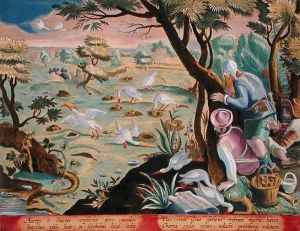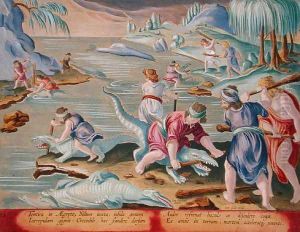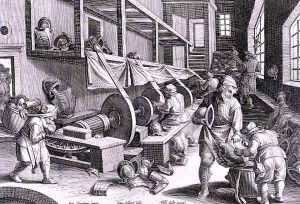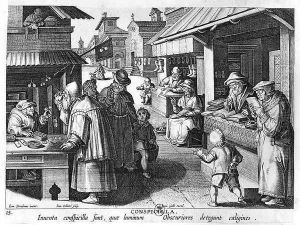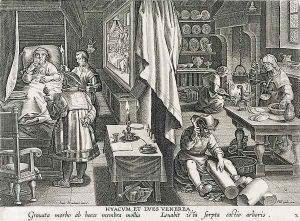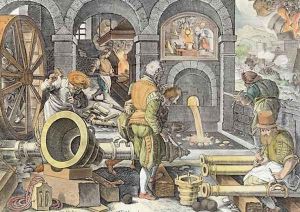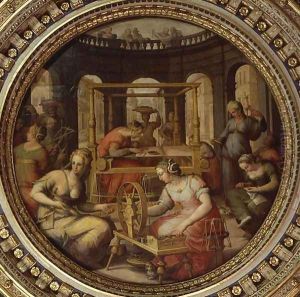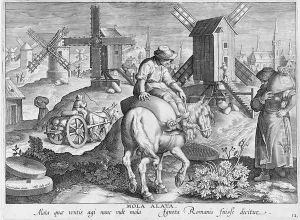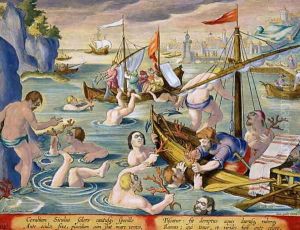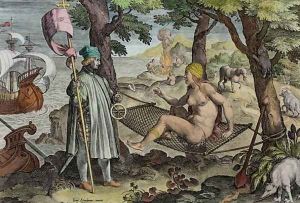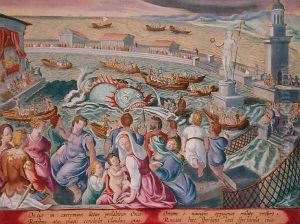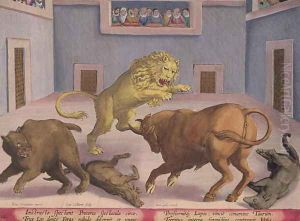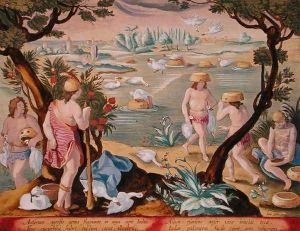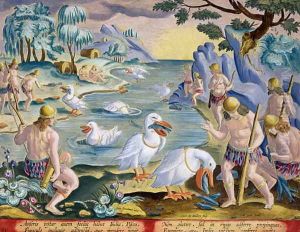





Semi-Naked Savages of India Using Pelicans to Catch Fish, plate 91 from Venationes Ferarum, Avium, Piscium Of Hunting Wild Beasts, Birds, Fish engraved by Jan Collaert 1566-1628 published by Phillipus Gallaeus of Amsterdam
-
About Reproduction
Discover the allure of art with our faithful reproduction of "Semi-Naked Savages of India Using Pelicans to Catch Fish, plate 91 from Venationes Ferarum, Avium, Piscium Of Hunting Wild Beasts, Birds, Fish engraved by Jan Collaert 1566-1628 published by Phillipus Gallaeus of Amsterdam", originally brought to life by the talented Giovanni Stradano. Unlike posters or prints, our hand-painted oil painting breathes an unique sense of depth and texture into your space. Every detail, every stroke, and every texture is meticulously recreated, paying the perfect homage to Giovanni Stradano and his artistic vision.
Owning this piece is more than just decoration - it's a statement of your refined taste in art. Let the vibrant colors and intricate details of this replica serve as a daily reminder of the beauty in our world. Elevate your decor and appreciate the richness of art with our replica of this masterpiece.
-
Painting Description
"Semi-Naked Savages of India Using Pelicans to Catch Fish" is a notable engraving that serves as plate 91 in the series "Venationes Ferarum, Avium, Piscium," which translates to "Of Hunting Wild Beasts, Birds, Fish." This series, created during the late 16th and early 17th centuries, is a collection of engravings that depict various hunting scenes from around the world. The engraving in question was crafted by Jan Collaert (1566–1628), a distinguished Flemish engraver of the time, under the direction of the Italian artist Giovanni Stradano, also known as Stradanus or Jan van der Straet.
The series was published by Phillipus Gallaeus, also known as Philips Galle, in Amsterdam and is renowned for its intricate details and historical significance. "Semi-Naked Savages of India Using Pelicans to Catch Fish" specifically portrays an imaginative scene where indigenous people of India are depicted using pelicans, a practice not historically documented, to aid in their fishing efforts. The artwork reflects the European fascination with exotic cultures and practices during the Age of Discovery, often blending fact with fantasy to captivate and educate its audience.
The engraving is a testament to the collaborative efforts of the period, where artists and publishers worked together to produce works that were both artistically appealing and commercially viable. It also serves as an example of how art was used to convey perceptions of distant lands and peoples, which, while not always accurate, contributed to the broader European understanding of the world beyond their borders.
Today, the engraving is of interest not only for its artistic merit but also for its role in the history of ethnographic representation and the dissemination of knowledge during the early modern period. It is a valuable piece for scholars studying the history of printmaking, cultural exchange, and the representation of non-European peoples in art.
-
Lead Time & Shipping
When you order this oil painting replica, it typically takes 2-3 weeks to paint. If the artwork is more complex, it might need a little more time to ensure the best quality. Once it's ready, we'll send you a photo for your approval. After you give the green light, we'll ship it to you for free.
-
Return & Refund
We believe in the quality of our hand-painted oil painting reproductions, and your satisfaction is our priority. If for any reason, you are not completely satisfied with your purchase, we offer a 45-day return policy. You can return your artwork within 45 days of receipt and receive a full refund. Please note that the artwork must be returned in the original packaging and in the same condition as it was received.

